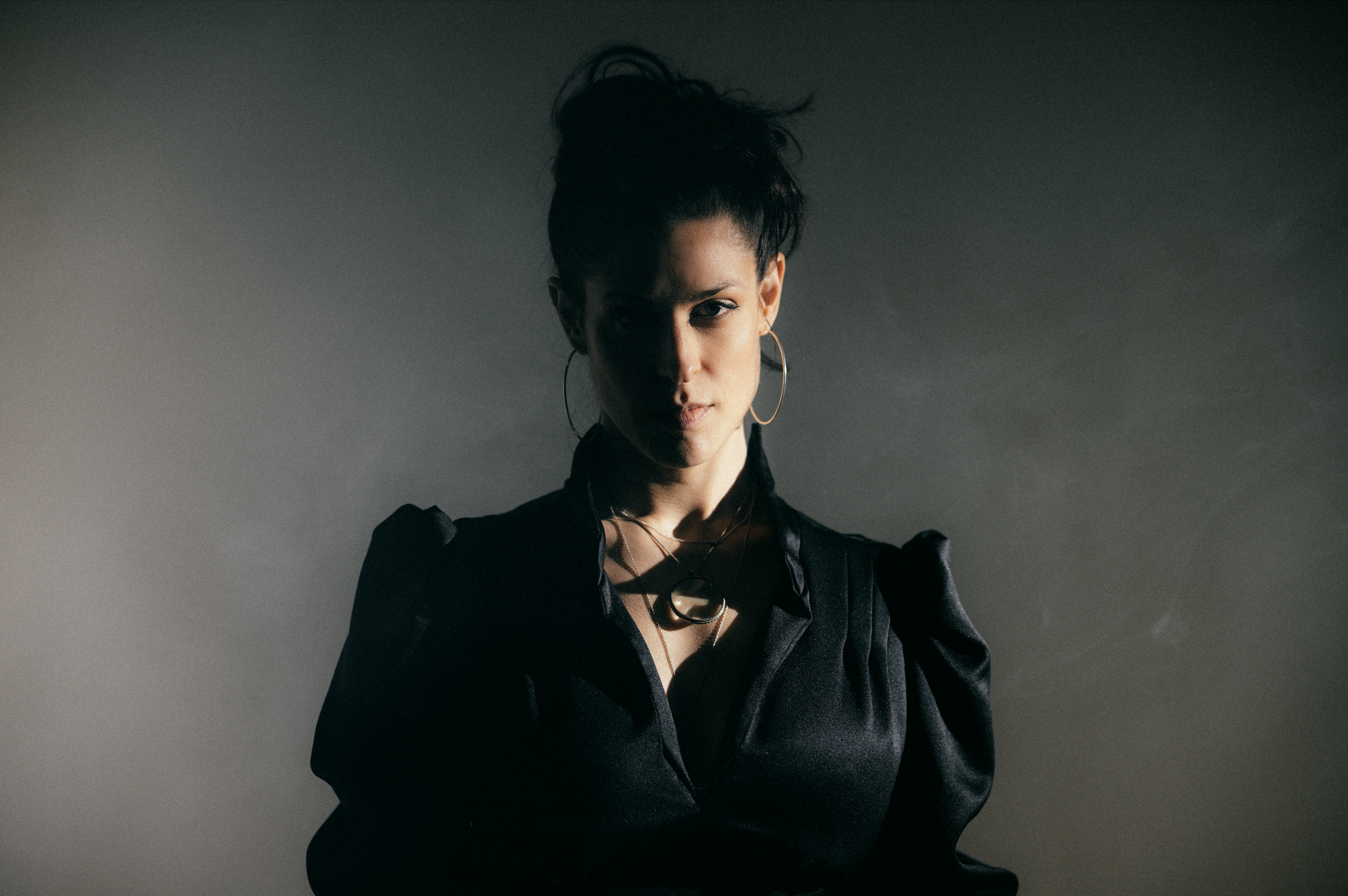
Sam Gehrke

Audio By Carbonatix
For Dessa, creating music was never the goal. The Minneapolis-born rapper/singer has a degree in philosophy from the University of Minnesota; her passion had always been writing. It took the enticing, rhythmic energy of slam poetry and a fortuitous run-in with a stranger to shift her focus to the Twin Cities’ underground hip-hop scene.
“I submitted a lot of essays to fancy magazines in New York, and I was raised in the Midwest and didn’t really get anywhere,” she says, recalling the aspirations of her twenty-year-old self. “My friend eventually took me to a poetry slam, where winning poets at the end of the night would get…fifty bucks, one hundred bucks, a bar tab. But it was a way to start. After we attended the first show, she was like, ‘I think you could do this,’ and I was like, ‘I think I could do this.'”
Dessa reworked her essays into viable options for slam poetry and hit the stage. A local rapper who saw her perform – he went by Yoni – encouraged her to set her words to a beat. He also handed her a stack of gritty CDs burned by underground, self-made rappers. One CD (with a macabre image of a dead bird on the cover) caught her attention. It was by the Minneapolis hip-hop collective and label Doomtree, and Dessa gravitated to Doomtree’s raw, honest sound.
“It would be hard for me to say one way they didn’t influence my career,” Dessa says. “Their live shows were messy and spirited, and you could tell that they were real. You could tell they weren’t reciting scripted jokes or choreographed moves. They were making things up on the fly, and they were responding to the crowd in real time. They were responding to each other in real time. And there was sort of this infectious invitation to be part of it.”
Dessa was invited to join the collective when she was 23. “I called my mom,” she remembers, “and I was like, ‘Mom, I was asked to join Doomtree.’ And she was like, ‘What is a Doomtree? Don’t buy any cocaine.’ And I said, ‘Nobody has any money for cocaine.'” Today Doomtree comprises seven artists: Dessa, Cecil Otter, Lazerbeak, Mike Mictlan, Paper Tiger, Sims and P.O.S.
The group’s trademark DIY, punk-rock feel is threaded throughout Dessa’s music. Her newest album, Bury the Lede, dropped on September 29 and is another exemplary display of music that refuses to bow to typical rules. For those who want to hear her out-of-the-box bangers and ballads, Dessa will be playing at Ophelia’s Electric Soapbox on October 4, with opener Kayla Marque – whose voice Dessa finds “phenomenal.”
As the title suggests, Bury the Lede is an intricate combination of the potent lyrics of a born writer and the playful, pop-esque sound of an exploratory artist; it’s also a denial of the notion that pop must be simple. A lede is the introductory paragraph of a news piece; the phrase “bury the lede” refers to writing that fails to emphasize the most important point of a story from the start. Burying the lede results in evasive, indirect work that often digresses from the main point – and that’s exactly what Dessa’s album does.
“I think that there is the presumption that pop music has to cater to the lowest common denominator of listeners,” Dessa says. “I don’t buy into the idea that pop music can’t also feature smart lyrics. It has to be catchy. It most likely has to happen within a [beat per minute] that can move your body. Be accessible, but I don’t think you have to dumb down the lyrics. And so I liked the idea of using a title that was immediately writerly.
“I think a lot of our behavior is driven by some really core and elemental drivers,” she continues. “I want to feel purposeful. I want to love and be loved. Death and illness are scary. And a lot of our conduct, I think, can be directly tied to one of three or four really basic buried ledes. I think there are some elemental propulsive engines of our lives that if you read far enough, you often find buried in the text of our other thoughts and complaints and ideas about the world.”
Dessa likens her creation process to building a mosaic of pebbles, resulting in tracks that bind themes and harmonies into literary snippets of life philosophies. Although each song on the album is a uniquely crafted masterwork, one of Dessa’s personal favorites is “Hurricane Party.”
“When I first learned that there was a ritual phenomenon in cities that are hit by hurricanes where people would
literally invite people over, cover the windows, stock up on provisions and have a party because this might be the end of the world…I thought that was such a natural metaphor and allegory for what can sometimes feel like a relentless onslaught of doomsday news,” she says. “You have to make room for Friday nights even amid all of the existential threat that seems to be arriving from every direction. So in a lot of ways, it felt like, oh, it’s almost as if we are all crafting a hurricane party of our own design.”
Dessa, 9 p.m. Wednesday, October 4, Ophelia’s Electric Soapbox, 1215 20th Street; tickets are $22 here.